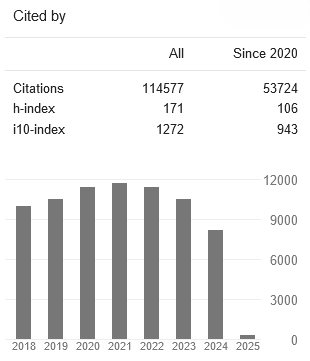Understanding Self-Perceived Employability within National and International Higher Education Contexts: University of Poitiers in Egypt as a Model
- Hanane Elzeiny
- Wessam Khedr
Abstract
Purpose: Based on the Human Capital and Social Cognitive Career theories, this research aims to 1) gauge self-Perceived Employability (SPE) among undergraduates in Egypt via examining students in two well established Egyptian Universities (Alexandria and in Shams Universities); (2) evaluate the relative differences in SPE between International and national educational programs; along with (3) examining the role of Internship in shaping students self-perceived employability; and (4) explore the influence (if any) of Gender on SPE.
Methodology: The study population includes all students enrolled in the third and fourth year from two French departments namely: DGCI department in Ain shams University and DFGA department in Alexandria University; in addition to their counterparts’ students in the national English departments in the same two universities. The data was collected using a self-administered questionnaire. The respondents were chosen based on a convenience sampling technique. Using SPSS version 21, t-test analysis was used to examine three research hypotheses; first, students in international programs would have higher self-perceived employability than those in national programs; second, students with internship experience would have higher self-perceived employability than those without; and third, male students would have higher self-perceived employability than their female peers.
Findings: The study findings approved the first and second hypotheses; however, the third hypothesis revealed that female students have higher self-perceived employability than their male peers, which was the opposite of what was anticipated.
Value and originality: Overall, this study is an attempt to contribute to understanding employability within an internationalized higher education context, especially in underrepresented regions like Egypt. The results would benefit various audiences in making useful decisions for improving academic Human Resource Developing programs in higher education through promoting students’ employability, as well as make appropriate decisions to better prepare for their career development in the future.
- Full Text:
 PDF
PDF
- DOI:10.5539/ijbm.v20n4p122
Journal Metrics
Google-based Impact Factor (2023): 0.86
h-index(2023): 152
i10-index(2023): 1168

Index
- Academic Journals Database
- ACNP
- AIDEA list (Italian Academy of Business Administration)
- ANVUR (Italian National Agency for the Evaluation of Universities and Research Institutes)
- Berkeley Library
- CNKI Scholar
- COPAC
- EBSCOhost
- Electronic Journals Library
- Elektronische Zeitschriftenbibliothek (EZB)
- EuroPub Database
- Excellence in Research for Australia (ERA)
- Genamics JournalSeek
- GETIT@YALE (Yale University Library)
- IBZ Online
- JournalTOCs
- Library and Archives Canada
- LOCKSS
- MIAR
- National Library of Australia
- Norwegian Centre for Research Data (NSD)
- PKP Open Archives Harvester
- Publons
- Qualis/CAPES
- RePEc
- ROAD
- Scilit
- SHERPA/RoMEO
- Standard Periodical Directory
- Universe Digital Library
- UoS Library
- WorldCat
- ZBW-German National Library of Economics
Contact
- Stephen LeeEditorial Assistant
- ijbm@ccsenet.org
